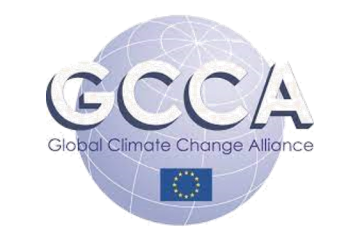Research and development study “Superkuu” for a sustainable yam Guinée
![]() AGRICULTURE
AGRICULTURE ![]() ENVIRONMENT
ENVIRONMENT ![]() FORESTRY
FORESTRY


Services: Technical and economic advice, Diagnostics and feasibility studies
Countries: Guinée
Dates of intervention: 2015/11 - 2016/04
Amount executed: 77 059 €
Total amount of the service: 77 059 €
Main backer: Alliance mondiale contre le changement climatique - Client
Other backers: Prospect Consulting & Services
Main beneficiary: Fédération des unions de coopératives productrices d’igname et sésame de Guinée
Support provider: SalvaTerra
Experts: Olivier BOUYER, Maden LE CROM
Certificate of satisfactory executionMission « SUPER KUU* » - Promotion d’une culture de l’igname durable en Haute-Guinée, Guinée Conakry : rentable et « climate-friendly »
Context of the service
Guinean yam production accounted for about 0.2% of West African production in 2000. Nevertheless, this production is concentrated in a few sub-prefectures of Upper Guinea where the sector is locally important. Yam yields are low and have been decreasing for about ten years. Yams are little consumed in Guinea (less than 12 kg/inhabitant/year, sixteen times less than in Côte d'Ivoire), but this consumption is expected to increase, especially in urban areas.
As yams are demanding in fertility and are often grown after forest slash-and-burn felling, their production contributes to global deforestation and the greenhouse effect. It also contributes to soil degradation and biodiversity erosion.
The study aimed to identify climate-smart agricultural practices, ensuring profitable production for farmers, while being adapted to climate change and contributing to its mitigation.
Services provided
The following services were provided:
- Seed: the 13 varieties of D. cayenensis-rotundata and four most common varieties of D. alata have been described and recommendations made for their multiplication (massal selection, minisetts);
- Production: routes based on direct seeding under cover crops (Pueraria phaseolides and Cajanus cajan) have been proposed;
- Transformation: processing into chips has been highlighted (increased conservation, lower transport costs, valorization of small tubers and offers work for women;
- Tests: a "Mother and Baby Trials" device was designed to test 4 technical routes (with/without mounding, with/without cover);
- Techno-economic monitoring: it was set up according to the recommendations of farmers, in order to be simple while being reliable;
- Forest carbon monitoring: it was implemented following IPCC and GOFC/GOLD guidelines.
Summary of the service
Support to the Federation of Yam and Sesame Producers of Guinea (FUCPIS) for increased and sustainable yam production (including forest-friendly): State of play of the sector; Characterization of cultivated species; Proposal of improved technical itineraries (including direct seeding under plant cover); Mother and Baby Trials; Techno-economic monitoring system; Forest carbon monitoring system.